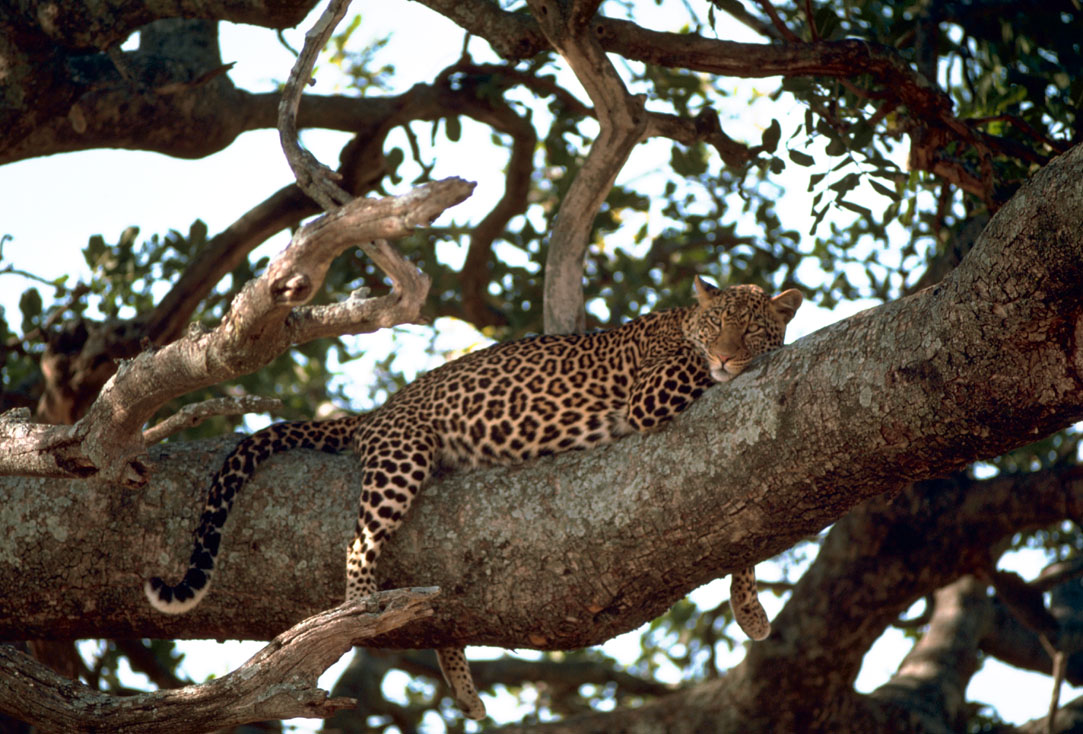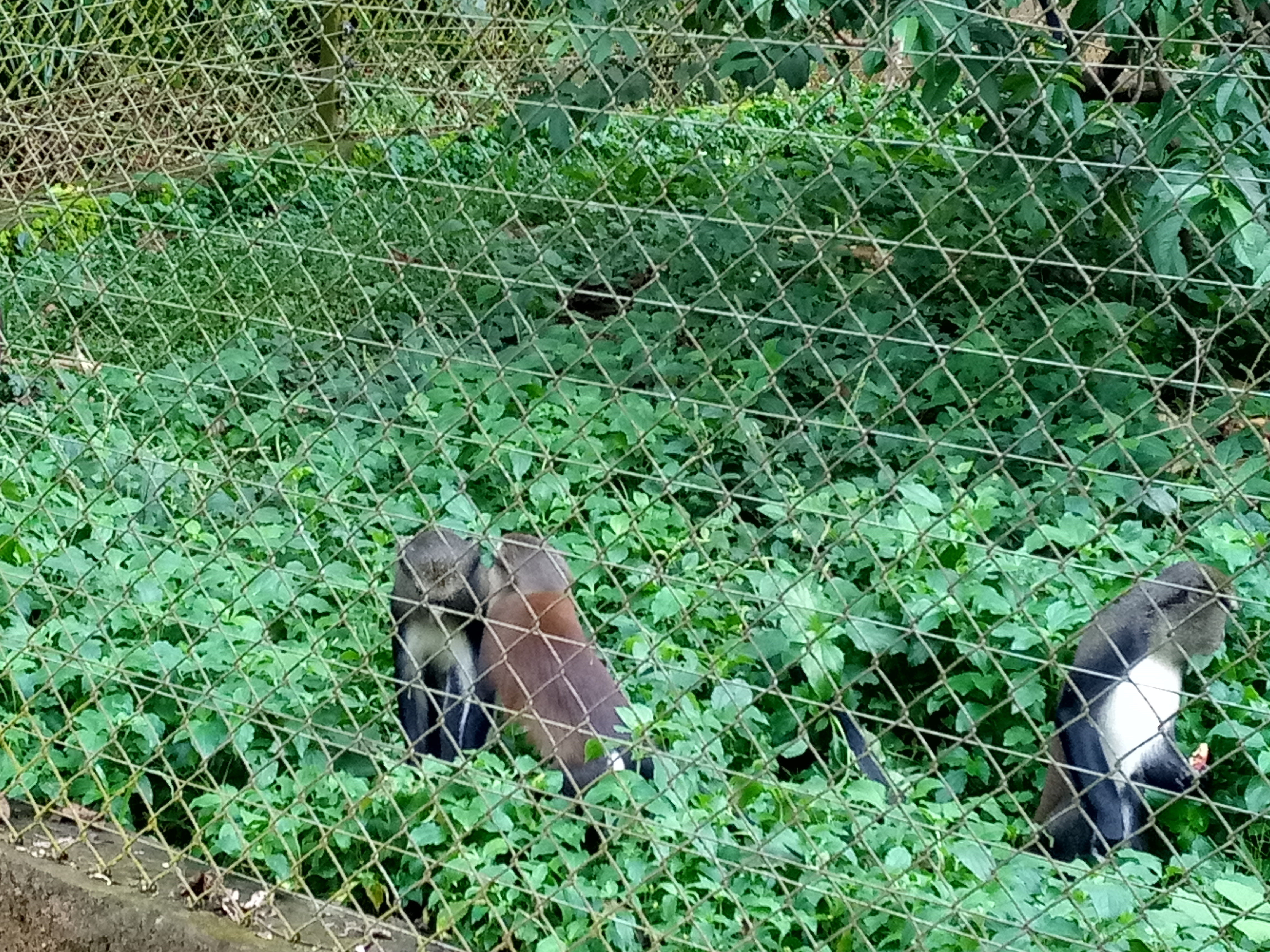|
White-throated Guenon
The white-throated guenon (''Cercopithecus erythrogaster''), also known as the red-bellied monkey and the red-bellied guenon, is a diurnal primate that lives on trees of rainforests or tropical areas of Nigeria and Benin. The white-throated guenon is usually a frugivore but insects, leaves, and crops are also in its diet. It usually lives in small groups of four to five individual monkeys however, there have been groups of 30 discovered, and in cases, some males wander alone. It is arboreal, living in moist tropical forest and the wettest parts of dry tropical forest, however it can also be found in secondary bush and old farmland. Males weigh from 3.5–4.5 kg and females weigh 2–4 kg. Females give birth to one offspring, which is a factor of decreasing population. The white-throated guenon was once considered extinct due to constant hunting for the fur of its unique red belly and white front legs. Yet, a small group was found near the Niger River in 1988. ... [...More Info...] [...Related Items...] OR: [Wikipedia] [Google] [Baidu] |
John Edward Gray
John Edward Gray, FRS (12 February 1800 – 7 March 1875) was a British zoologist. He was the elder brother of zoologist George Robert Gray and son of the pharmacologist and botanist Samuel Frederick Gray (1766–1828). The same is used for a zoological name. Gray was keeper of zoology at the British Museum in London from 1840 until Christmas 1874, before the natural history holdings were split off to the Natural History Museum. He published several catalogues of the museum collections that included comprehensive discussions of animal groups and descriptions of new species. He improved the zoological collections to make them amongst the best in the world. Biography Gray was born in Walsall, but his family soon moved to London, where Gray studied medicine. He assisted his father in writing ''The Natural Arrangement of British Plants'' (1821). After being blackballed by the Linnean Society of London, Gray shifted his interest from botany to zoology. He began his zoologica ... [...More Info...] [...Related Items...] OR: [Wikipedia] [Google] [Baidu] |
Diurnal Animal
Diurnality is a form of plant and animal behavior characterized by activity during daytime, with a period of sleeping or other inactivity at night. The common adjective used for daytime activity is "diurnal". The timing of activity by an animal depends on a variety of environmental factors such as the temperature, the ability to gather food by sight, the risk of predation, and the time of year. Diurnality is a cycle of activity within a 24-hour period; cyclic activities called circadian rhythms are endogenous cycles not dependent on external cues or environmental factors except for a zeitgeber. Animals active during twilight are crepuscular, those active during the night are nocturnal and animals active at sporadic times during both night and day are cathemeral. Plants that open their flowers during the daytime are described as diurnal, while those that bloom during nighttime are nocturnal. The timing of flower opening is often related to the time at which preferred pollinato ... [...More Info...] [...Related Items...] OR: [Wikipedia] [Google] [Baidu] |
Nigeria
Nigeria ( ), , ig, Naìjíríyà, yo, Nàìjíríà, pcm, Naijá , ff, Naajeeriya, kcg, Naijeriya officially the Federal Republic of Nigeria, is a country in West Africa. It is situated between the Sahel to the north and the Gulf of Guinea to the south in the Atlantic Ocean. It covers an area of , and with a population of over 225 million, it is the most populous country in Africa, and the world's sixth-most populous country. Nigeria borders Niger in the north, Chad in the northeast, Cameroon in the east, and Benin in the west. Nigeria is a federal republic comprising of 36 states and the Federal Capital Territory, where the capital, Abuja, is located. The largest city in Nigeria is Lagos, one of the largest metropolitan areas in the world and the second-largest in Africa. Nigeria has been home to several indigenous pre-colonial states and kingdoms since the second millennium BC, with the Nok civilization in the 15th century BC, marking the first ... [...More Info...] [...Related Items...] OR: [Wikipedia] [Google] [Baidu] |
Benin
Benin ( , ; french: Bénin , ff, Benen), officially the Republic of Benin (french: République du Bénin), and formerly Dahomey, is a country in West Africa. It is bordered by Togo to the west, Nigeria to the east, Burkina Faso to the north-west, and Niger to the north-east. The majority of its population lives on the southern coastline of the Bight of Benin, part of the Gulf of Guinea in the northernmost tropical portion of the Atlantic Ocean. The capital is Porto-Novo, and the seat of government is in Cotonou, the most populous city and economic capital. Benin covers an area of and its population in was estimated to be approximately million. It is a tropical nation, dependent on agriculture, and is an exporter of palm oil and cotton. Some employment and income arise from subsistence farming. The official language of Benin is French, with indigenous languages such as Fon, Bariba, Yoruba and Dendi also spoken. The largest religious group in Benin is Sunni Islam (27 ... [...More Info...] [...Related Items...] OR: [Wikipedia] [Google] [Baidu] |
Frugivore
A frugivore is an animal that thrives mostly on raw fruits or succulent fruit-like produce of plants such as roots, shoots, nuts and seeds. Approximately 20% of mammalian herbivores eat fruit. Frugivores are highly dependent on the abundance and nutritional composition of fruits. Frugivores can benefit or hinder fruit-producing plants by either dispersing or destroying their seeds through digestion. When both the fruit-producing plant and the frugivore benefit by fruit-eating behavior the interaction is a form of mutualism. Frugivore seed dispersal Seed dispersal is important for plants because it allows their progeny to move away from their parents over time. The advantages of seed dispersal may have led to the evolution of fleshy fruits, which entice animals to consume them and move the plant's seeds from place to place. While many fruit-producing plant species would not disperse far without frugivores, their seeds can usually germinate even if they fall to the ground directl ... [...More Info...] [...Related Items...] OR: [Wikipedia] [Google] [Baidu] |
Arboreal
Arboreal locomotion is the Animal locomotion, locomotion of animals in trees. In habitats in which trees are present, animals have evolved to move in them. Some animals may scale trees only occasionally, but others are exclusively arboreal. The habitats pose numerous mechanical challenges to animals moving through them and lead to a variety of anatomical, behavioral and ecological consequences as well as variations throughout different species.Cartmill, M. (1985). Climbing. In ''Functional Vertebrate Morphology'', eds. M. Hildebrand D. M. Bramble K. F. Liem and D. B. Wake, pp. 73–88. Cambridge: Belknap Press. Furthermore, many of these same principles may be applied to climbing without trees, such as on rock piles or mountains. Some animals are exclusively arboreal in habitat, such as the tree snail. Biomechanics Arboreal habitats pose numerous mechanical challenges to animals moving in them, which have been solved in diverse ways. These challenges include moving on n ... [...More Info...] [...Related Items...] OR: [Wikipedia] [Google] [Baidu] |
Tropical Forest
Tropical forests (a.k.a. jungle) are forested landscapes in tropical regions: ''i.e.'' land areas approximately bounded by the tropic of Cancer and Capricorn, but possibly affected by other factors such as prevailing winds. Some tropical forest types are difficult to categorise. While forests in temperate areas are readily categorised on the basis of tree canopy density, such schemes do not work well in tropical forests. There is no single scheme that defines what a forest is, in tropical regions or elsewhere.Anatoly Shvidenko, Charles Victor Barber, Reidar Persson et al. 2005 "Millennium Ecosystem Assessment." Ecosystems and human wellbeing: a framework for assessment Washington, DC: Island Press Because of these difficulties, information on the extent of tropical forests varies between sources. However, tropical forests are extensive, making up just under half the world's forests. The tropical domain has the largest proportion of the world’s forests (45 percent), followed by ... [...More Info...] [...Related Items...] OR: [Wikipedia] [Google] [Baidu] |
Guinean Forests Of West Africa
The Guinean forests of West Africa is a biodiversity hotspot designated by Conservation International, which includes the belt of tropical moist broadleaf forests along the coast of West Africa, running from Sierra Leone and Guinea in the west to the Sanaga River of Cameroon in the east. The Dahomey Gap, a region of savanna and dry forest in Togo and Benin, divides the Guinean forests into the Upper Guinean forests and Lower Guinean forests. The Upper Guinean forests extend from Sierra Leone and Guinea in the west through Liberia, Côte d'Ivoire, and Ghana to Togo in the east. The Lower Guinean forests extend east from Benin through Nigeria and Cameroon. The Lower Guinean forests also extend south past the Sanaga River, the southern boundary of the hotspot, into southern Cameroon, Equatorial Guinea, Gabon, Republic of the Congo, Cabinda, and Democratic Republic of the Congo. Ecoregions The World Wide Fund for Nature divides the Upper and Lower Guinean forests into a number of di ... [...More Info...] [...Related Items...] OR: [Wikipedia] [Google] [Baidu] |
West Africa
West Africa or Western Africa is the westernmost region of Africa. The United Nations defines Western Africa as the 16 countries of Benin, Burkina Faso, Cape Verde, The Gambia, Ghana, Guinea, Guinea-Bissau, Ivory Coast, Liberia, Mali, Mauritania, Niger, Nigeria, Senegal, Sierra Leone, and Togo, as well as Saint Helena, Ascension and Tristan da Cunha ( United Kingdom Overseas Territory).Paul R. Masson, Catherine Anne Pattillo, "Monetary union in West Africa (ECOWAS): is it desirable and how could it be achieved?" (Introduction). International Monetary Fund, 2001. The population of West Africa is estimated at about million people as of , and at 381,981,000 as of 2017, of which 189,672,000 are female and 192,309,000 male. The region is demographically and economically one of the fastest growing on the African continent. Early history in West Africa included a number of prominent regional powers that dominated different parts of both the coastal and internal trade networks, suc ... [...More Info...] [...Related Items...] OR: [Wikipedia] [Google] [Baidu] |
Biodiversity Hotspot
A biodiversity hotspot is a biogeographic region with significant levels of biodiversity that is threatened by human habitation. Norman Myers wrote about the concept in two articles in ''The Environmentalist'' in 1988 and 1990, after which the concept was revised following thorough analysis by Myers and others into “Hotspots: Earth’s Biologically Richest and Most Endangered Terrestrial Ecoregions” and a paper published in the journal ''Nature'', both in 2000. To qualify as a biodiversity hotspot on Myers' 2000 edition of the hotspot map, a region must meet two strict criteria: it must contain at least 1,500 species of vascular plants (more than 0.5% of the world's total) as endemics, and it has to have lost at least 70% of its primary vegetation. Globally, 36 zones qualify under this definition. These sites support nearly 60% of the world's plant, bird, mammal, reptile, and amphibian species, with a high share of those species as endemics. Some of these hotspots support up ... [...More Info...] [...Related Items...] OR: [Wikipedia] [Google] [Baidu] |
Subspecies
In biological classification, subspecies is a rank below species, used for populations that live in different areas and vary in size, shape, or other physical characteristics (morphology), but that can successfully interbreed. Not all species have subspecies, but for those that do there must be at least two. Subspecies is abbreviated subsp. or ssp. and the singular and plural forms are the same ("the subspecies is" or "the subspecies are"). In zoology, under the International Code of Zoological Nomenclature, the subspecies is the only taxonomic rank below that of species that can receive a name. In botany and mycology, under the International Code of Nomenclature for algae, fungi, and plants, other infraspecific ranks, such as variety, may be named. In bacteriology and virology, under standard bacterial nomenclature and virus nomenclature, there are recommendations but not strict requirements for recognizing other important infraspecific ranks. A taxonomist decides whether ... [...More Info...] [...Related Items...] OR: [Wikipedia] [Google] [Baidu] |
Guenons
The guenons (, ) are Old World monkeys of the genus ''Cercopithecus'' (). Not all members of this genus have the word "guenon" in their common names; also, because of changes in scientific classification, some monkeys in other genera may have common names that include the word "guenon". Nonetheless, the use of the term guenon for monkeys of this genus is widely accepted. All members of the genus are endemic to sub-Saharan Africa, and most are forest monkeys. Many of the species are quite local in their ranges, and some have even more local subspecies. Many are threatened or endangered because of habitat loss. The species currently placed in the genus '' Chlorocebus'', such as vervet monkeys and green monkeys, were formerly considered as a single species in this genus, ''Cercopithecus aethiops''. In the English language, the word "guenon" is apparently of French origin. In French, ''guenon'' was the common name for all species and individuals, both males and females, from the ge ... [...More Info...] [...Related Items...] OR: [Wikipedia] [Google] [Baidu] |





